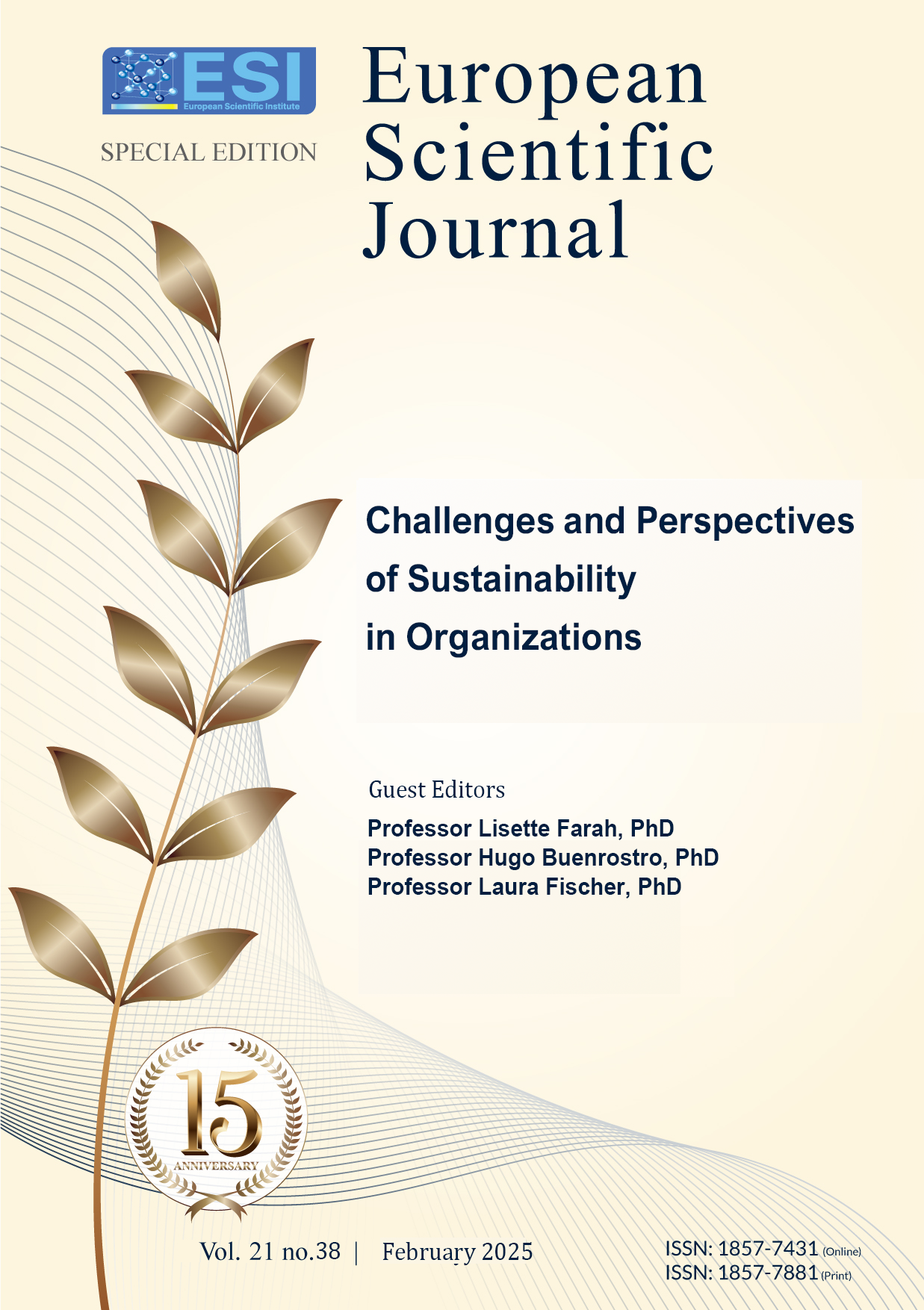Análisis de las dimensiones económica, social y ambiental de la sostenibilidad en las estrategias de las principales empresas de turismo espacial
Abstract
Este estudio examina las estrategias de sostenibilidad implementadas por SpaceX, Blue Origin y Virgin Galactic en el contexto del turismo espacial emergente. A partir de una revisión de la bibliografía académica sobre las prácticas y políticas sostenibles de las empresas, así como de la consulta de sus sitios web oficiales, se realiza un análisis de las dimensiones económica, social y ambiental de la sostenibilidad con el fin de evaluar el compromiso de las principales empresas de turismo espacial con la reducción de costos, la inclusión social y la mitigación del impacto ambiental. El estudio concluye que, si bien se han realizado progresos notables, para lograr una sostenibilidad integral en el turismo espacial se requiere un enfoque más holístico y colaborativo que aborde de manera equitativa las dimensiones de la sostenibilidad.
This study examines the sustainability strategies implemented by SpaceX, Blue Origin and Virgin Galactic in the context of emerging space tourism. Based on a review of the academic literature on the companies' sustainable practices and policies as well as consultation with the companies' official websites, an analysis of the economic, social and environmental dimensions of sustainability is conducted to assess the commitment of the leading space tourism companies to cost reduction, social inclusion and environmental impact mitigation. The study concludes that while notable progress has been made, achieving comprehensive sustainability in space tourism requires a more holistic and collaborative approach that equitably addresses the dimensions of sustainability.
Downloads
PlumX Statistics
References
2. Barcellos de Paula, L. (2010). Modelos de gestión aplicados a la sostenibilidad empresarial. Universidad de Barcelona.
3. Blue Origin. (s. f.). Blue Origin’s Sustainability Story. Blue Origin: For The Benefit of Earth. https://www.blueorigin.com/es-MX/sustainability
4. Brundtland, G. H. (1987). Our Common Future: Report of the World Commission on Environment and Development. UN-Dokument A/42/427. http://www.un-documents.net/ocf-ov.htm
5. Bukley, A., Frize, R., y La Regina, V. (2015). Space Tourism: Risks and Solutions. En J. Galliott (Ed.), Commercial space exploration: Ethics, policy and governance (pp. 107-122). Ashgate.
6. Castelló, E. (2019). La sostenibilidad como modelo de gestión empresarial. Economistas, 33, 22-25.
7. Cohen, E. (2017). The paradoxes of space tourism. Tourism Recreation Research, 42(1), 22-31. https://doi.org/10.1080/02508281.2016.1239331
8. Collins, P., y Autino, A. (2010). What the growth of a space tourism industry could contribute to employment, economic growth, environmental protection, education, culture and world peace. Acta Astronautica, 66(11-12), 1553-1562. https://doi.org/10.1016/j.actaastro.2009.09.012
9. Dickens, P., y Ormrod, J. S. (2007). Outer Space and Internal Nature: Towards a Sociology of the Universe. Sociology, 41(4), 609-626. https://doi.org/10.1177/0038038507078915
10. Frost, J., y Frost, W. (2022). Exploring prosocial and environmental motivations of frontier tourists: Implications for sustainable space tourism. Journal of Sustainable Tourism, 30(9), 2254-2270. https://doi.org/10.1080/09669582.2021.1897131
11. Hall, C. M., Gössling, S., y Scott, D. (Eds.). (2017). The Routledge handbook of tourism and sustainability (First issued in paperback). Routledge.
12. Kim, M. J., Hall, C. M., Kwon, O., y Sohn, K. (2024). Space tourism: Value-attitude-behavior theory, artificial intelligence, and sustainability. Journal of Retailing and Consumer Services, 77, 103654. https://doi.org/10.1016/j.jretconser.2023.103654
13. Martínez, R., y Martínez, D. (2016). Perspectivas de la sustentabilidad: Teoría y campos de análisis. Pensamiento Actual, 16(26), 123. https://doi.org/10.15517/pa.v16i26.25188
14. Masson-Zwaan, T., y Freeland, S. (2010). Between heaven and earth: The legal challenges of human space travel. Acta Astronautica, 66(11-12), 1597-1607. https://doi.org/10.1016/j.actaastro.2009.12.015
15. Milo, A. (2023, agosto 11). Virgin Galactic realiza su primer vuelo comercial al espacio suborbital. National Geographic en español. https://www.ngenespanol.com/el-espacio/virgin-galactic-realiza-su-primer-vuelo-comercial-al-espacio-suborbital/
16. Padhy, A. K., y Padhy, A. K. (2021). Legal conundrums of space tourism. Acta Astronautica, 184, 269-273. https://doi.org/10.1016/j.actaastro.2021.04.024
17. Peeters, P. (2018). Why space tourism will not be part of sustainable tourism. Tourism Recreation Research, 43(4), 540-543. https://doi.org/10.1080/02508281.2018.1511942
18. Ross, M., Mills, M., y Toohey, D. (2010). Potential climate impact of black carbon emitted by rockets. Geophysical Research Letters, 37(24), 2010GL044548. https://doi.org/10.1029/2010GL044548
19. Scott, B. (2018). Exploration to Exploitation: An Industry Analysis of Suborbital Space Tourism. New Space, 6(1), 87–98. https://doi.org/10.1089/space.2017.0041
20. SpaceX. (2022, febrero 22). SpaceX’s approach to space sustainability and safety. UPDATES. https://www.SpaceX.com/updates/
21. Spector, S., Higham, J. E. S., y Doering, A. (2017). Beyond the biosphere: Tourism, outer space, and sustainability. Tourism Recreation Research, 42(3), 273-283. https://doi.org/10.1080/02508281.2017.1286062
22. Van Pelt, M. (2005). Space tourism: Adventures in Earth’s orbit and beyond. Springer.
23. Virgin Galactic. (2024, febrero 29). Investing in our future. SPACELINE FOR EARTH. https://investors.virgingalactic.com/ESG/default.asp
Copyright (c) 2025 Yamilet Azucena Morales Fuentes, Lisette Farah Simón

This work is licensed under a Creative Commons Attribution 4.0 International License.








